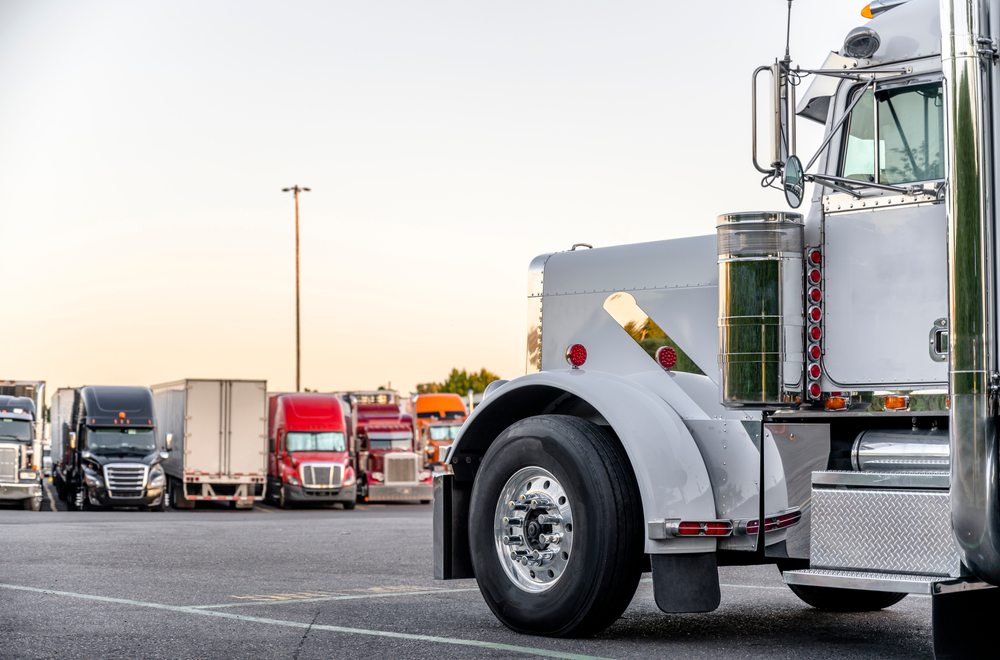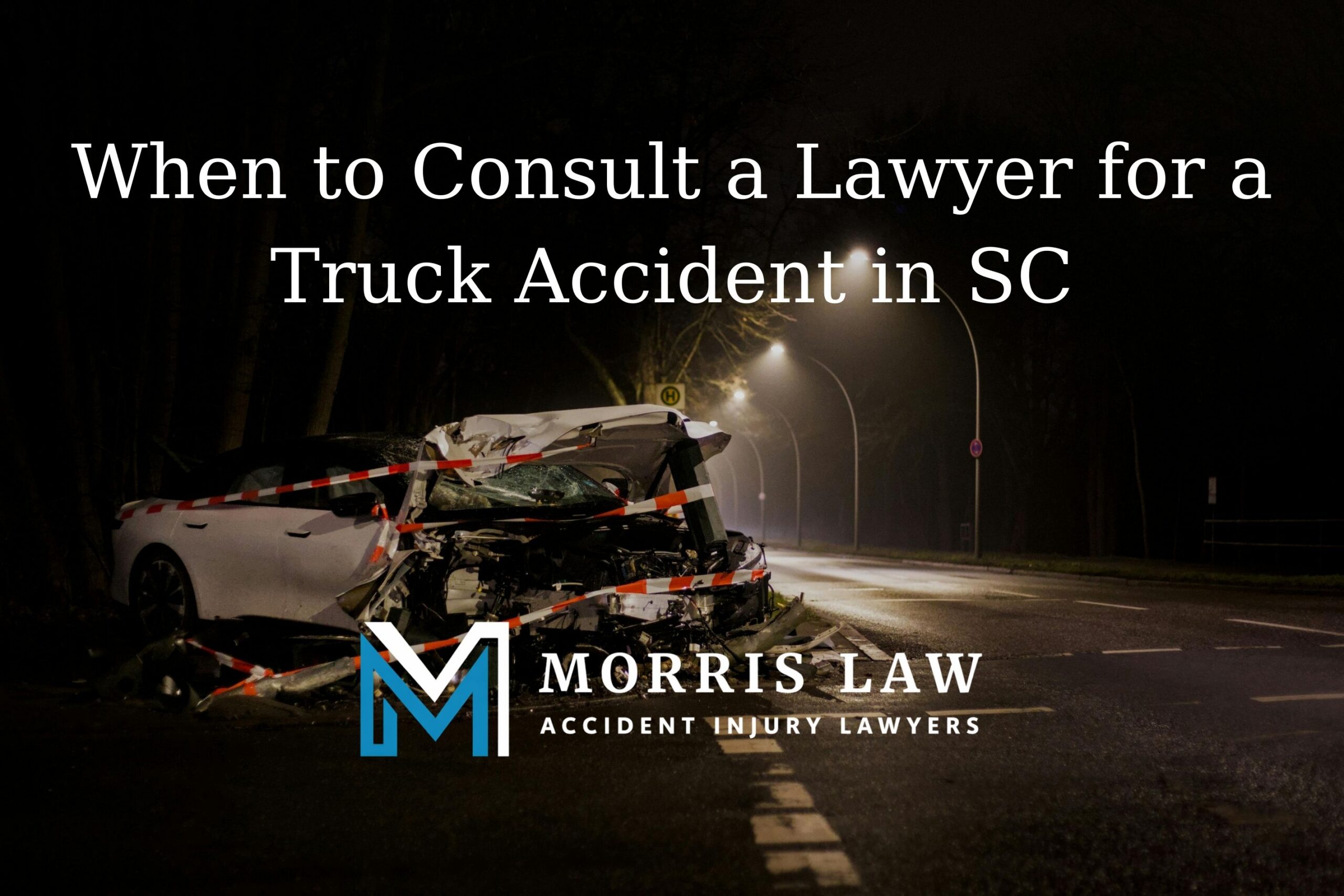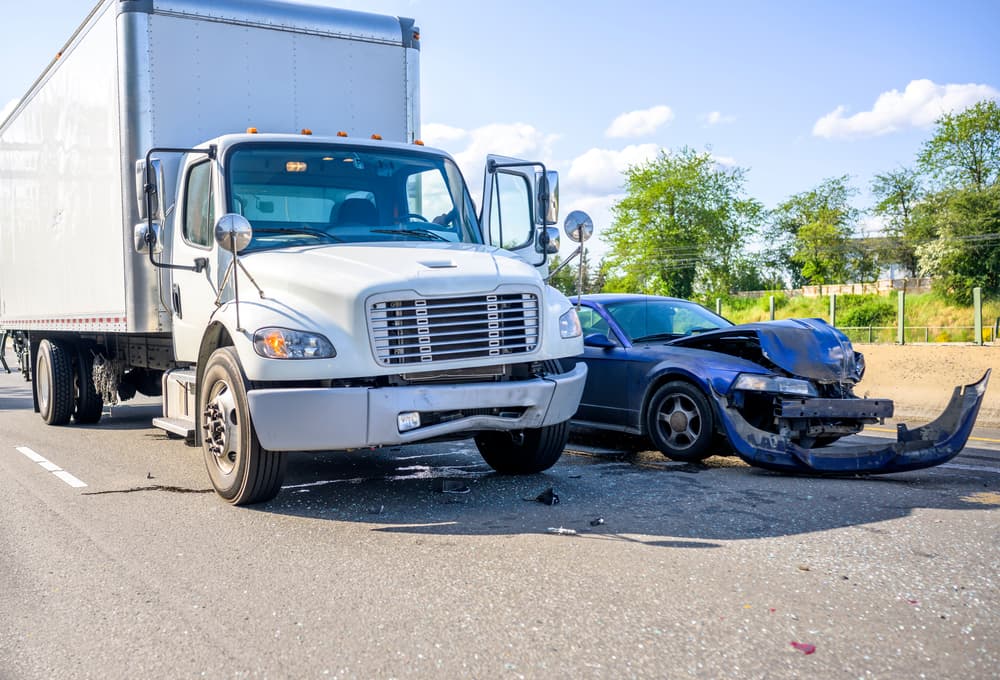If a trucking company violates Federal Motor Carrier Safety Administration (FMCSA) rules, the agency may fine it or shut it down.
If the violation results in an accident, the company may owe compensation to the victims and their loved ones.
The law often treats FMCSA regulation violations as proof that a trucking company acted negligently or recklessly, meaning they have to pay damages to those whom its misconduct harmed.
This review of FMCSA rules relating to trucking safety covers violations’ costly consequences and the ways a skilled Columbia truck accident lawyer can secure compensation for victims when a violation causes a truck accident.
Overview of Trucking-Safety-Related FMCSA Rules

FMCSA is a government agency that regulates the interstate trucking industry in the United States. One of its principal aims is to reduce crashes, injuries, and fatalities involving large trucks and buses.
To that end, the FMCSA promulgates detailed regulations that companies and their drivers must follow. Here are some of the most significant categories of FMCSA rules that ensure the safe operation of trucks on U.S. roads:
Hours of Service (HOS) Rules
HOS rules dictate how many hours per day and how many days per week a truck driver can operate a vehicle before taking a required rest period. Studies show that trucker fatigue contributes significantly to accidents involving commercial trucks.
To mitigate this risk, drivers must limit their driving time and take mandatory breaks at regular intervals. Trucking companies must also keep logs of their drivers' on-road and rest time to document compliance with HOS requirements.
Medical Requirements
FMCSA rules require truck drivers to meet specific medical standards. These rules ensure drivers do not suffer from conditions that might impair their ability to operate a commercial vehicle safely.
Some forms of heart disease, high blood pressure, epilepsy, and other medical conditions, for instance, may disqualify a driver. Truckers must periodically re-certify their physical fitness to maintain eligibility to drive a large truck.
Vehicle Maintenance Regulations
Trucking companies must maintain their fleet in safe working conditions, which requires conducting regular vehicle inspections, making timely repairs and part replacements, and adhering to maintenance schedules. Companies must keep detailed records of all maintenance and repair work.
Drug and Alcohol Testing
The FMCSA mandates regular random drug and alcohol testing for drivers to ensure they do not operate under the influence, which is crucial, as substance abuse can contribute significantly to truck accidents.
Weight, Load, and Cargo Securement Rules
To maintain stability and control of the vehicle, regulations specify weight and size limits for trucks and their cargo. They also dictate practices for securing truck cargo. Overloading or improperly loading a truck increases the risk of tipping, mechanical failure, loss of control, and other mishaps that can cause accidents.
Training Requirements
Drivers must meet certain training requirements, demonstrating an understanding of safety rules and hands-on proficiency when operating a commercial vehicle. Trucking companies must ensure that the drivers they hire have taken the requisite training and receive refreshers to keep their skills and knowledge up to date.
Common FMCSA Rule Violations
Even with the FMCSA's comprehensive rules to ensure safe truck operation on the roads, violations still occur.
Some violations are due to carelessness, others result from oversights, and, sometimes, truckers and trucking companies deliberately bend or break the rules. FMCSA rule violations pose significant safety risks to innocent motorists.
Common FMCSA rule violations include:
- HOS violations that occur when trucking companies push their drivers to meet unrealistically tight delivery schedules.
- Non-compliance with maintenance regulations to save money or keep trucks on the road to increase revenues.
- Failure to conduct adequate driver screening and training, This is a common occurrence because of the current trucker shortage and companies' desire to meet the growing demand for trucking services.
- Drug and alcohol violations, many of which involve drivers taking over-the-counter or prescription medications to treat chronic health conditions or stay awake and alert behind the wheel.
- Load securement violations, which occur when shippers do not appreciate the critical importance of balancing loads to minimize the risk of a sudden shift leading to a loss of control.
- Record-keeping violations, which result from trucking companies' lax enforcement of rules requiring clear documentation of their safety rule compliance.
Breaking FMCSA rules endangers truck drivers and other motorists’ lives and can put trucking companies’ operations at risk. Penalties for violations can include fines and loss of operating authority.
If a violation triggers an accident, the trucking company can face lawsuits and financial liability to injured crash victims or their families.
Legal Liability for Accidents Resulting From FMCSA Rule Violations
Trucking companies face substantial legal liabilities when their rule violations result in accidents. Under negligence per se, a legal doctrine, trucking companies generally owe damages if their safety rule violation causes the sort of harm the rule aims to prevent.
If a trucking company pressures a driver to violate the HOS rules and the fatigued driver causes an accident, for example, the company has acted negligently because it violated a safety rule that aims to prevent this type of accident.
You can hold several parties accountable for FMCSA rule violations. You can hold the trucking company liable for violating the rules, as well as other parties, such as the truck driver, a third-party maintenance provider, or even the cargo loader if they violated FMCSA rules that led to the accident.
Victims of truck accidents that FMCSA rule violations caused can seek several types of compensation, including compensatory damages, which cover economic losses (such as medical costs and lost income) and non-economic losses (such as pain, suffering, and diminished quality of life).
In cases where the FMCSA rule violation was particularly egregious, a court may also award victims punitive damages, which punish the wrongdoer and deter others.
If an FMCSA rule violation leads to a fatal accident, the surviving spouse or family members can often file a wrongful death claim. This legal action aims to compensate the bereaved for their loss of support, companionship, and other harm related to their loved one's untimely death.
Every truck accident case is different. If you sustained injuries or lost a loved one in a truck accident that may have involved a trucking company's violation of FMCSA regulations, talk to an experienced truck accident lawyer immediately to learn about your rights to compensation.
A Truck Accident Lawyer's Role in Securing Compensation
When you are dealing with the aftermath of a truck accident, having an experienced lawyer on your side can make a significant difference to your ability to recover compensation. Skilled truck accident lawyers provide numerous services to victims of truck accidents and their grieving families.
These include:
- Investing thoroughly: An experienced truck accident lawyer can launch a comprehensive investigation to uncover FMCSA rule violations that may have contributed to your accident, including analyzing driver logs, maintenance records, and driver training records to uncover signs of misconduct.
- Gathering evidence: The lawyer gathers and preserves all relevant evidence to build a strong case, including physical evidence from the accident scene, photographs, eyewitness testimonies, and expert opinions.
- Evaluating damages: A truck accident lawyer knows how to accurately calculate the full extent of your damages, ensuring any legal action you take seeks the maximum possible compensation.
- Negotiating settlements: A truck accident lawyer negotiates with the trucking company's defense lawyer and insurance provider on your behalf to secure a fair settlement of your claim, if possible.
- Representing you in court: A truck accident lawyer can represent you in court and present a compelling case for compensation to a judge and jury.
The sooner you have a skilled truck accident lawyer on your side after sustaining injuries in a truck accident, the stronger your chances of recovering fair compensation for your losses. Talk to a lawyer today to learn what they can do for you.
Frequently Asked Questions in Injury Cases Against Trucking Companies
Here are the answers to some questions we commonly receive from truck accident victims about pursuing a claim for damages against a trucking company.
How Do I Know if a Trucking Company's FMCSA Rule Violation Caused the Accident That Injured Me?
Determining a truck accident's cause often requires detailed investigation and analysis. An experienced truck accident lawyer can handle this process on your behalf by obtaining and examining relevant records to identify potential rule violations that may have contributed to the accident.
The lawyer can enlist expert witnesses, such as accident reconstruction specialists, who can examine the physical and observational evidence from the crash site to identify what caused the crash.
Who Decides if an FMCSA Rule Violation Occurred?
The FMCSA evaluates compliance with its rules in most cases. In the context of a vehicle accident, an FMCSA official may evaluate the accident and determine whether the trucking company violated the rules.
If the FMCSA does not weigh in, however, a judge or jury could decide whether the events that took place reflected a violation of their regulations.
Should I Accept a Settlement Offer the Trucking Company's Insurance Company Offered Me?
You should not accept an offer without first speaking with an experienced truck accident lawyer. While the prospect of a quick settlement may seem appealing, any offer the insurance company makes directly will probably not cover your losses fairly.
Insurers often approach victims like you before you've had a chance to file a claim or even speak with a lawyer, hoping to convince you to accept a lowball offer that will let them off the hook for your losses at a fraction of what they truly owe.
Do not fall for this tactic. You should immediately contact an experienced truck accident lawyer who can evaluate your damages and handle negotiations with the insurance company on your behalf. More often than not, an experienced attorney can get you far more than what the insurer initially offered.
How Much Does It Cost to Hire a Truck Accident Lawyer to Handle My Injury Claim?
It should not cost you anything unless and until the lawyer gets you results. Most truck accident lawyers offer a free case evaluation for people in your situation.
In an in-person or remote meeting, you can discuss your claim with an experienced legal professional and learn about your potential options for seeking compensation through legal action. You will not owe a penny for this session, even if you decide not to proceed.
Truck accident lawyers also represent their clients on contingency. They do not charge upfront fees or hourly rates. Instead, their fee consists of a percentage of any money they secure on your behalf. They only receive payment if they win the case.
Contact an Experienced Truck Accident Lawyer Today

If you or someone you love recently sustained injuries in a truck accident, a trucking company may have violated FMCSA regulations. If so, that could make the company liable for your losses and simplify the process of holding them accountable.
An experienced truck accident lawyer can handle your claim, investigating potential regulatory violations and doing the work necessary to build a strong case on your behalf. To learn more about your rights and options, contact an attorney today for a free case evaluation.








